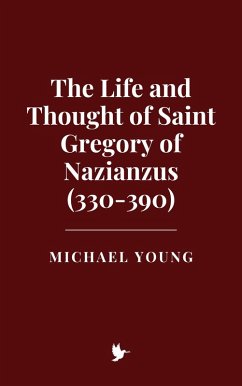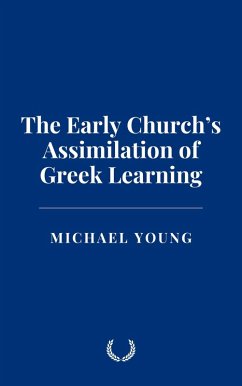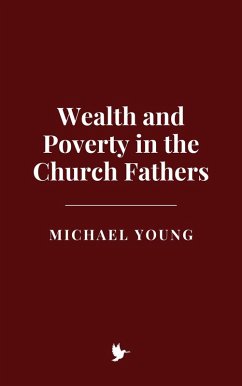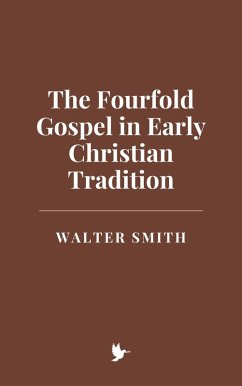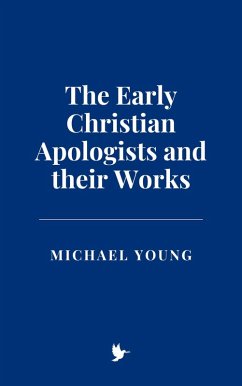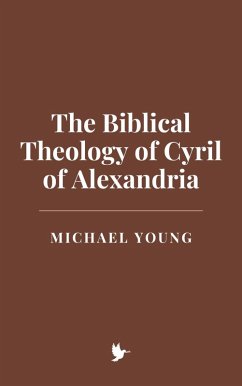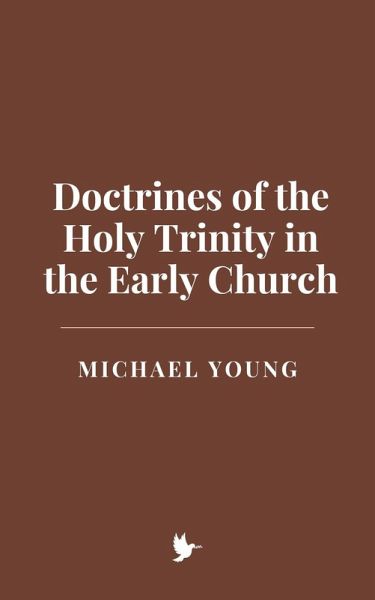
Doctrines of the Holy Trinity in the Early Church (eBook, ePUB)

PAYBACK Punkte
0 °P sammeln!
This book explores the rich and complex history of the doctrine of the Holy Trinity, tracing its development from the early Church to contemporary theological discussions. Beginning with the foundational scriptures and early Christian reflections on the nature of God, the text examines the formation of Trinitarian doctrine through pivotal theological debates, including the Arian controversy, the Council of Nicaea, and the contributions of key figures such as Athanasius, the Cappadocian Fathers, and Augustine. Moving through the medieval period, the Reformation, and the Enlightenment, the book ...
This book explores the rich and complex history of the doctrine of the Holy Trinity, tracing its development from the early Church to contemporary theological discussions. Beginning with the foundational scriptures and early Christian reflections on the nature of God, the text examines the formation of Trinitarian doctrine through pivotal theological debates, including the Arian controversy, the Council of Nicaea, and the contributions of key figures such as Athanasius, the Cappadocian Fathers, and Augustine. Moving through the medieval period, the Reformation, and the Enlightenment, the book highlights the ways in which the Trinity was interpreted, challenged, and re-envisioned by both Christian theologians and external philosophical movements.
The work further delves into the profound shifts in Trinitarian theology in the modern era, addressing the rise of feminist, liberation, postcolonial, and process theologies. It also examines how the Trinity is being rethought in the context of a globalized, pluralistic world, where dialogue with Islam, Judaism, indigenous religions, and contemporary challenges to the traditional Christian understanding of God increasingly shape the doctrine.
Throughout, the book highlights the Trinitarian doctrine's enduring significance as a central tenet of Christian faith, while also acknowledging the diversity of perspectives that have emerged in response to changing historical, cultural, and intellectual contexts. The exploration is marked by a deep engagement with primary sources, theological concepts, and a comprehensive analysis of how the doctrine has evolved, adapted, and been challenged over the centuries, offering a profound reflection on the nature of God as relational, dynamic, and transformative.
The work further delves into the profound shifts in Trinitarian theology in the modern era, addressing the rise of feminist, liberation, postcolonial, and process theologies. It also examines how the Trinity is being rethought in the context of a globalized, pluralistic world, where dialogue with Islam, Judaism, indigenous religions, and contemporary challenges to the traditional Christian understanding of God increasingly shape the doctrine.
Throughout, the book highlights the Trinitarian doctrine's enduring significance as a central tenet of Christian faith, while also acknowledging the diversity of perspectives that have emerged in response to changing historical, cultural, and intellectual contexts. The exploration is marked by a deep engagement with primary sources, theological concepts, and a comprehensive analysis of how the doctrine has evolved, adapted, and been challenged over the centuries, offering a profound reflection on the nature of God as relational, dynamic, and transformative.
Dieser Download kann aus rechtlichen Gründen nur mit Rechnungsadresse in A, B, CY, CZ, D, DK, EW, E, FIN, F, GR, H, IRL, I, LT, L, LR, M, NL, PL, P, R, S, SLO, SK ausgeliefert werden.





